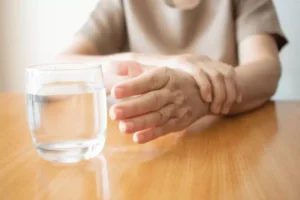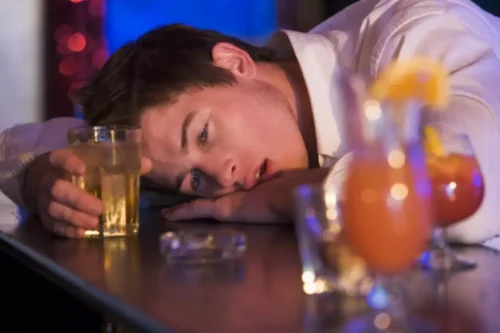
When a craving for alcohol strikes, a good first step involves acknowledging the craving, according to Mehta. She goes on to explain that while the craving might be intense, it will lessen and pass in a few minutes. Internal triggerstypically involve memories, thoughts, emotions, or physical sensations that prompt the urge to drink. From eligibility criteria to finding network providers, we demystify your coverage questions.
Alcohol’s Effect on Glucose Regulation
- Furthermore, genetic factors also play a role in sugar preference and addiction.
- This can significantly aid the recovery process and support long-term sobriety.
- In truth, it’s not always such a bad thing to eat some extra sugar in recovery.
- Here are two key strategies that can assist in managing sugar cravings during recovery.
- Experiencing alcohol cravings may not automatically mean you have an AUD.
- The is the biggest reason why sugar cravings appear in early sobriety, especially the first month.
Your unique neurobiology will influence whether you experience intense cravings or not, says Weiss. Replacing alcohol with sugar is common—in fact, one study suggests up to 40 percent of people who stop drinking increase their sugar intake in the days after quitting. Many treatment patients are young adults whose addiction began right around the time that most people begin developing healthy life skills.

How Do Behavioral Therapies Address Drug Addiction?
- However, excessive drinking (more than three drinks daily) can result in higher blood glucose and A1C levels [6].
- The similarities between the effects of sugar and drugs of abuse on the brain and behavior highlight the complex nature of addiction and recovery.
- However, another study suggests consuming sweets in early recovery poses a risk for treatment outcomes.
- Remember, overcoming sugar cravings during recovery is a process that requires time, patience, and a multidimensional approach.
- It could take some time and effort to find a strategy that helps you navigate them effectively, but you do have plenty of options for support.
Targeting sweet-cope may help reduce sugar consumption in early recovery and improve corresponding health concerns common in this population [5]. Overall, it’s clear that sugar cravings among recovering alcoholics can be influenced by both physical and emotional factors. Recognizing these factors and addressing them as part of a comprehensive recovery plan can increase the chances of successful recovery.
- These routines may include specific times of the day or situations where they used to consume alcohol.
- Understanding the biological factors that contribute to sugar cravings in individuals with alcohol use disorder (AUD) is essential to gaining insight into this phenomenon.
- The shared release of these neurotransmitters in response to both sugar and alcohol suggests a common neural pathway between sweet preference and alcohol dependence.
- Turning to sugar can offer a quick and easily accessible source of pleasure, albeit temporary.
- The body, in an attempt to restore balance, triggers cravings for sugar, a quick source of energy, to counteract the low blood sugar levels caused by alcohol consumption [1].
Coping Mechanisms and Substitution

Understanding the microbiome’s influence on sugar cravings is crucial for individuals in recovery from alcohol addiction. A comprehensive approach to recovery should consider the impact of the microbiome, genetics, and neurobiology on sugar cravings, while also focusing on proper nutrition and overall well-being. Cravings for sugar have been found to be strongly linked to alterations in microbiome composition and neuroactive potential over time in individuals with alcohol dependency.
To understand why alcoholics often experience intense cravings for sugar, it is important to explore the shared neurobiological pathways between alcohol dependence and sweet preferences. Several factors contribute to the connection between the two phenomena, including neurotransmitters and neural receptors, as well as the phenomena of craving and sensitization. Alcohol cravings can be a complex phenomenon influenced by various factors, including the impact of alcohol on blood sugar levels and the link between alcohol and sweet cravings. Eating a whole foods plant-based diet can help stabilize blood sugar levels, reducing sugar cravings and alcohol cravings [5].

Exploring the Dangers of Alcohol and Over-the-Counter Drugs
Simple carbohydrates such as processed sugar raise our glucose levels; however, those same levels plummet after the sugar high runs its course. If we accept that low glucose levels induce cravings, this spells potential disaster when using sugar as a substitute. The notion of using candy as substitutes for alcohol cravings sounds like a bad joke, something that would end with the punchline “chocoholic.” That’s okay—you don’t have to take our word for it. Let’s examine the experiences of others in recovery, along with a few expert opinions. This is because your brain is used to the dopamine rush of alcohol, and sugar provides a similar rush.

The financial losses of addiction caused many of them to subsist on fast food. In recovery, their treatment center helped them determine their future dietary choices. And while rehabs such as Avenues Recovery pride ourselves on offering a diverse and nutritious menu, many treatment centers still consider this a secondary concern. If you or a loved one is struggling with why do alcoholics crave sugar alcohol use or you believe you’ve developed a sugar addiction in response to sobriety, support is available. Consult with a medical professional for more information on treatment options you can try. Marisa Savic, PMHNP-BC is a board certified psychiatric mental health nurse practitioner who received her nursing and master’s degrees at the University of Pennsylvania.
Let’s pull back the veil on this lesser-known aspect of sobriety, while laying down some strategies to help you steer clear of both booze and undesired candy conquests. Chaos might be the law of nature, but your dietary habits don’t have to be. As discussed above, sugar can be as addictive as alcohol for https://ecosoberhouse.com/ some people. Excessive consumption of fructose sweeteners, for example, can lead to fatty liver disease—just like alcohol. And restoring healthy digestion and blood sugar can make a big difference in long-term recovery. Long-term, alcohol abuse disrupts your body’s ability to regulate your blood sugar.
Genetic Factors and Sugar Preference
Finding the right combination of techniques may take some experimentation. Even with the best natural strategies, alcohol cravings can sometimes be tough to handle. It’s okay to seek more support if you are having a hard time curbing your cravings this way. There are proven, evidence-based treatments that can help you manage them more effectively.

